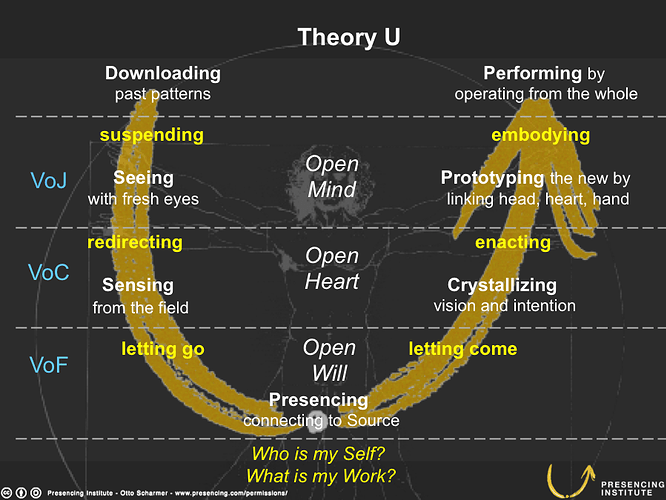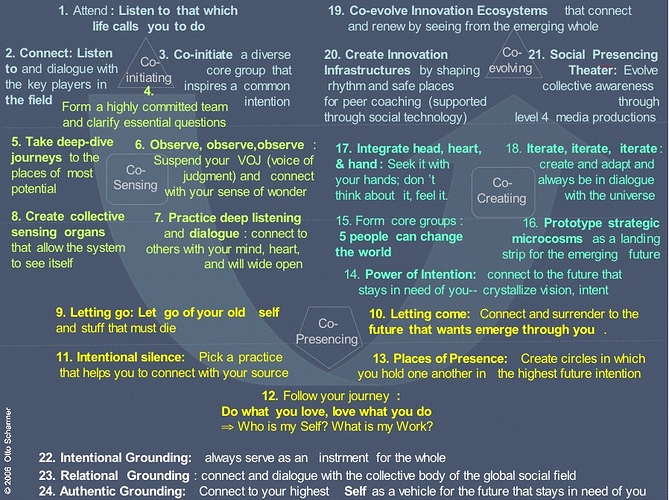I noticed that we have a number of topics in which the purpose of OGM is discussed, including:
- OGM Workshop Group 1 output
- Core purpose
- So, exactly WHY are we here? What is it that most needs being done?
No, I didn’t open this topic as yet another space to address it, just the opposite — to call our attention to the fact that when the same subject is addressed in different containers, it increases the likelihood that:
-
People, who don’t notice or can’t follow all the conversations about the same at different places, will miss some valuable contributions, get confused about where to post their own contribution, and get disconnected from the flow of productive engagement.
-
Collective sensemaking, self-reflection, memory, and intelligence are becoming increasingly difficult to nourish, due to the balkanization of the discussion about the same subject.
That situation is unavoidable in every virtual community without proper facilitation and knowledge gardening. It’s not really an issue in socmedia groups, where cultivating collective sensemaking, self-reflection, memory and intelligence is not part of the group’s aspirations and culture. The situation is exacerbated when:
- The same group of people are using different platforms with quasi-identical affordances (e.g. Discourse and Mattermost) for conversing about poorly differentiated subjects (e.g. Tools on Mattermost and Tools on Discourse ).
- New topics are opening without a well-defined reason for being posted in the topic opener.
- New topics are opening without a host helping the convo to go somewhere vs. endless meandering.
Hoping that some order will emerge from the looming crisis of our collective epistemology (that “roughly, refers to the study of the epistemological properties of groups and the significance of group knowledge production and acquisition” (source )?
Me too, and I also think that we may even be able to prevent the crisis. In fact, that’s why I’m opening this “Knowledge Gardeners Circle” topic with the intended purpose to attract enough people to a productive conversation about forming a community of knowledge gardeners dedicated to cultivating the collective intelligence of the OGM initiative.
Disclaimer: I do not offer to be the leader/coordinator of the suggested circle. I will be happy to be a member of KGC and act as a coach to it if the need that it is intended to serve gets enough traction and at least 3-5 people want to participate in it. I also offer to facilitate this topic until the circle is formally established and or the lack of sufficient support for it becomes evident.




